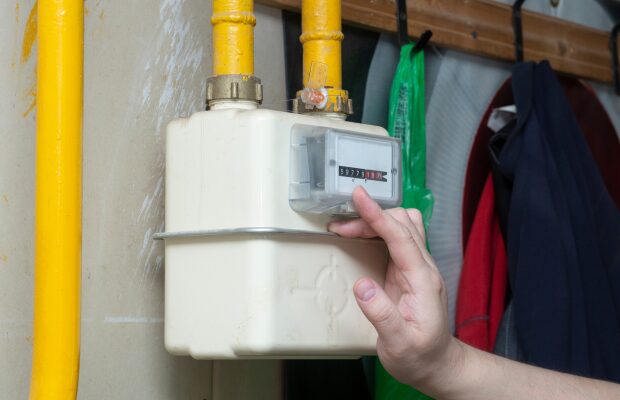Living in a student house can feel like the first step on the pathway to being a bone fide ‘adult’.
But one aspect of a student house that can cause friction and fallouts is bills.
Whether it’s the hassle of setting up accounts or the stress of deciding how to split your student bills, we’ve got some great tips to help you through…
What bills do you have to pay when renting as a student?
Some student landlords include certain bills within their monthly rent, but if they don’t, these are some of the bills you might need to pay (and one you won’t) when moving into your student house…
1. Gas and electricity
Electricity and gas bills in a property housing several students may be one of the biggest expenses you face when renting near your college or university.
If you don’t have a gas supply, you’ll just need to get your electricity service up and running.
But, if you do have both gas and electricity in your student house, you should look at a dual tariff with one supplier to make payments easy.
When you move into your student property, the first thing to do is take a gas and/or electricity meter reading and log these with the current energy supplier.
Not doing this right away could mean you end up paying a portion of the previous tenants’ bill.
Your landlord will be able to tell you who their energy suppliers are, but that doesn’t mean you need to continue with those suppliers.
Once you’ve submitted your opening meter readings, you should look online to see if a cheaper tariff is available with another supplier and consider switching if it is.
2. Water and sewerage
Your student property’s water supply will be managed by the local water company.
Unfortunately, you can’t look to switch supplier when it comes to water and sewerage, so you’ll be billed according to the water company’s standard rates.
If you have a water meter, meanwhile, you’ll pay for the exact amount of water you use rather than an estimated amount.
Water and sewerage bills are often issued quarterly, so the best way to pay is via a monthly direct debit.
This will help you stay on top of things and budget more effectively, rather than having a larger bill to pay four times a year.
3. Broadband
Some landlords will offer broadband as part of your monthly rent, but if they don’t, you’ll almost certainly need to arrange it yourself.
Decades ago, home broadband might have been seen as more of a luxury than an essential utility, but with online learning and coursework to complete, it’s now very much a must-have.
Broadband services are highly competitive, so make sure you shop around for a good deal.
4. TV licence
If you have a TV in your student property, you’ll need to pay for a TV licence.
While there is no discount for students when it comes to TV licences, you can apply for a partial refund for the months over the summer when you’re no longer living in your student property.
Even if you’re only watching a subscription service like Netflix or Amazon Prime, if you’re doing so on a television, you’ll need a licence.
If you’re only watching subscription TV on a mobile or tablet device and don’t have an actual TV, however, you won’t need a licence.
The number of TV licences you’ll need in your student house depends on the type of tenancy agreement you have.
If you’re renting your student house on a joint tenancy agreement with your other housemates, where you’re all responsible for the monthly rent, one licence will cover all the TVs in your property.
However, if you’re renting on individual tenancy agreements that cover each room, each housemate would need a separate licence to watch television in their rooms.
If no housemates have TVs in their rooms, though, one licence would be required for a television in a communal area.
5. TV subscriptions
Although not an essential student house bill, subscription TV packages like Netflix or Amazon Prime have grown in popularity in recent years.
Usually costing less than £10 a month, if you’re watching on a tablet, mobile or computer, streaming services can be a cost-effective alternative to owning a television and paying for a TV licence.
Lots of companies also offer streaming packages with broadband, too, meaning you can save money by bundling the two together.
6. Contents insurance
Yes, it sounds boring, but contents insurance can really save the day should the worst happen.
By the worst, we mean your most valuable belongings are stolen, damaged or destroyed.
A contents insurance policy covering all housemates’ belongings could only cost a few pounds each per month, so it’s well worth considering.
… one bill you won’t need to pay
The good news is, if you’re a student, you don’t have to pay council tax.
That’s a substantial saving – even with your bills being split several ways.
However, you do have to let your local authority know that you’re a student and therefore exempt from council tax, otherwise they’ll assume you’re not and bill you.
Student bill splitting: Five tips to keep things harmonious
If there’s one thing guaranteed to cause arguments in a student house, it’s money.
By agreeing how you’ll split the bills in your student house from day one, you’ll be able to avoid confrontation and enjoy the experience of student living.
Here are our top-five tips for splitting student bills…
1. Split equally between housemates
It sounds simple enough and it is.
Splitting all bills equally among housemates keeps things simple and this is the best way to avoid arguments over who pays what.
Of course, some housemates may use more water or more gas than others, while some may require superfast broadband and others may not.
But these things usually equal themselves out over the course of an academic year and an equal splitting of costs is by far the best approach to student bills.
2. Assign responsibility to each housemate
Even when your student bills are split equally between housemates, there’s still a bit of work involved in setting up and then paying for all the services you’re using.
So, a good approach can be to make each housemate responsible for setting up and then paying a certain bill each month.
The success of this approach depends on organisation and ensuring each housemate has enough money in their accounts to cover the bills.
3. Set up a bills bank account
A joint account solely for bills and in the names of all housemates can be a great way to keep your student house bill payments ticking along with minimum fuss.
All each housemate needs to do is ensure their share of the monthly bills is in the joint account ahead of each payment.
To really make this approach work, try to ensure that all your monthly bills come out of your joint account on roughly the same day.
That way, all each housemate needs to do is make sure their share lands in the account a day or two before the monthly bills are due.
4. Put every housemate’s name on the accounts
By making all housemates officially responsible for all bills, you can help ensure everyone pays their share in full and on time.
That’s because if a bill isn’t paid on time, it will affect everyone’s credit rating and not just the one person responsible for that particular bill.
5. Rent with bills included
The simplest way to deal with student bill splitting is not to have to worry about it at all.
That means renting a property where bills are included in the rent or speaking to your landlord about whether this is possible.
It’s likely you could still have some bills to pay yourself, however, as even landlords who offer student houses on a ‘bills included’ basis won’t always cover services like broadband, TV licences or streaming.
The best apps to help students split bills
From calculators and bill monitoring to online packages where one monthly payment covers all your student house bills, there are apps that can make the process easier for housemates…
1. Splitwise
Splitwise is one of the most popular bill-splitting apps out there – and it’s totally free.
The app has a clear dashboard, so all housemates can see what they owe and who’s paid what.
You can also set up reminders and even pay through the app, which offers a paid-for ‘Pro’ version.
For most students, however, the free download will be more than adequate.
2. Acasa
Although there’s a charge to use Acasa, depending on the size of your student house and the number of housemates, it can be money well spent given how easy this app makes dealing with student bills.
You simply download the app and select the bills you need to pay. The app will then give you a quote for one fixed monthly payment covering the bills you wish to pay.
Once your housemates have been invited and everyone is on the account, the app will split the amount between everyone, so each person can set up their own direct debit to pay their share.
3. Settle Up
Settle Up is a great option if you have a housemate without a smart phone.
That’s because you can send expenses via email, as well as through messaging and social media for those who are 100% online.
It’s free, with a premium paid-for option, and is especially useful for calculating equal splits of household bills quickly.








